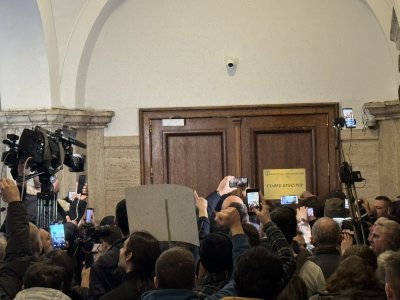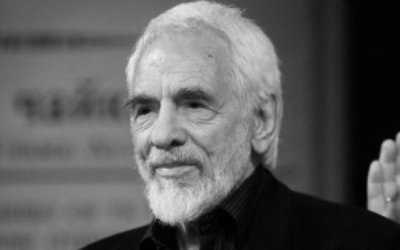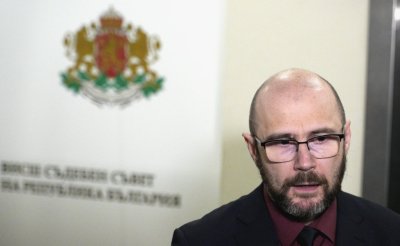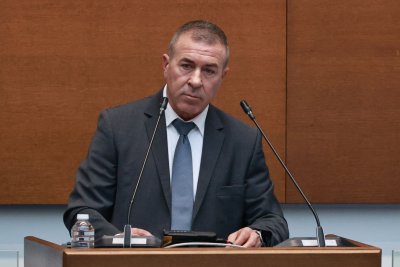One day after the Cabinet unveiled the parameters of Bulgaria’s 2026 draft state budget, sharp criticism has erupted from the opposition, trade unions and employers’ organisations. Critics argue that the draft fails to deliver meaningful reforms, deepens social inequality, pits sectors against each other and risks pushing the country into a debt spiral due to insufficient revenue.
Finance Minister Temenuzhka Petkova defended next year's estimates.
Opposition parties strongly attacked key revenue-side measures, including a 2-point rise in social security contributions for the state pension fund, a BGN 470 increase in the maximum monthly amount of the insurable earnings, and a hike in dividend tax from 5% to 10%.
“Yesterday we were presented with the worst budget since the time of Zhan Videnov,” said Ivaylo Mirchev, co-chair of “Yes, Bulgaria”. “In the past 30 years, never has a budget posed such an economic tsunami. The state has never pointed a gun at business in this way, nor forced the middle class to pay for an army of bureaucrats. We will oppose this budget in Parliament,” he said.

Tsontcho Ganev of “Vazrazhdane” echoed that sentiment, calling the draft “a huge budget built on lies” that burdens the country with debt and “destroys” small and medium-sized businesses. He claimed the proposed increase in social contributions effectively amounts to more than 10%.
“This whole thing we’ve been given is a massive budget built on lies, burying us in debt and destroying small and medium-sized businesses. Just this year alone, which is now coming to an end, we have 19 billion in new debt. The new budget plans for a further 20-plus billion. This is more than a 10% increase in social contributions, because there’s a difference between percentage points — they say they will raise them by 2 percentage points, but in percentage terms it is more than 10.5%,” commented Tsoncho Ganev, deputy chair of Vazrazhdane.

"The government has presented the first budget in euros as the only possible budget, the only viable option. In my view, this is an inertia-driven budget, without any real reform ideas whatsoever. What will cause problems for the fiscal balance is that, for the first time in many years, social security contributions for the pension fund are being increased by 2.5 percentage points — despite the fact that until just a week or two ago, the government insisted it would not raise the social security contributions in any way.
The mere fact that automatic increases in pay continue — through the so-called automatic mechanism for several sectors such as defence, the Interior Ministry and education — while all other sectors are only set to receive a 5% rise creates internal conflict and distortions," said Hasan Ademov of the Alliance for Rights and Freedoms.

Trade unions and employers’ organisations have expressed reservations about the draft budget. While businesses argue that the main issue is rising public-sector wages and unrealistic economic growth projections, unions say the problem is quite the opposite — that public-sector salaries are not increasing fast enough.
"I could not identify any positive aspects of this budget. There are no commitments to reforms; inefficient spending of public funds in unreformed systems persists. This is a retreat and an abandonment of reforms, and I do not believe we can support it," said Dobrin Ivanov, Executive Director of the Association of Industrial Capital in Bulgaria.

“The problem is that there is a mechanism tied to the average wage in many sectors where these automatic increases apply, while the government’s actual discretionary policy — independent of those mechanisms — amounts to only €135 million. We will protest against that 5% rise, because it is not acceptable when wages in the private sector are increasing by 12%,” commented Lyuboslav Kostov, senior economist at the Confederation of Independent Trade Unions in Bulgaria (CITUB).

The Finance Minister defended the projections in the draft budget.
“If we look at spending in the budget, there may be many comments about what it envisages, but one of the largest items is capital expenditure. This is linked to Bulgaria’s commitments and ambition, as well as the support we received from the European Commission to renegotiate the Recovery and Resilience Plan so that we can carry out all these investments and complete all these reforms by the end of August 2026,” said Finance Minister Temenuzhka Petkova.

All elements of the budget will be discussed with social partners tomorrow within the framework of the Tripartite Council.









 Чуй новините
Чуй новините Подкаст
Подкаст



























